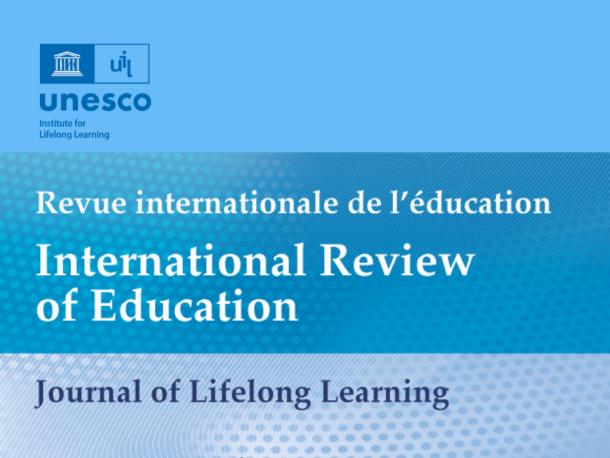News
New issue of IRE: A river runs through us

Mojave poet Natalie Diaz describes a relationship to nature which, while intimately connected to her sense of self and the identity of her people, is, as the Editor notes in his introduction to this new issue of the International Review of Education – Journal of Lifelong Learning (IRE), nevertheless ‘wholly alien to the human–nature dualism of Western thinking, which typically sees nature as a resource for human beings, something separate that we can dominate and exploit, though we depend on it’.
The weather extremes of this summer demonstrate that the climate crisis is no longer something we need to prepare for – it is already upon us, and decisive action, using every resource at our disposal, is overdue. Creating what the Editor terms ‘a green future that leaves no one behind’ means rethinking the purposes of education, including through listening to and learning from community-based Indigenous knowledge systems.
Although much discussion of the role of lifelong learning in creating such a future focuses on ‘the need for workers to reskill and upskill to prepare for the transition to green jobs and industry’, the Editor argues that the crisis ‘requires that we do more with our education and think much more ambitiously about its purpose’. A more effective and transformative use of lifelong learning, he writes, ‘would be to support critical reflection on our assumptions about the future and to create spaces in which hope can be fostered and different futures imagined and enacted’.
The six contributions to this issue explore examples of educational practice, pedagogy and curriculum development which challenge some of the traditional assumptions framing education systems and approaches, and offer actionable recommendations for change, with a particular emphasis on sustainable development and quality.
The articles focus on: the potential benefits of cognitive, social-emotional and behavioural learning to global citizenship education and education for sustainable development; the efforts of higher education institutions to integrate the goals and targets of the 2030 Agenda for Sustainable Development into their structures and activities (an analysis of progress reports prepared by signatories of the United Nations Principles of Responsible Management Education); adult literacy in the context of the 2030 Agenda (with particular reference to Tanzania); non-formal primary equivalency programme outcomes (a case study from Cambodia); initial and continuous professional development of adult educators (a European perspective); and the impact of dual apprenticeship training on skills development, competency transfer and job performance in the crafts sector (a study conducted in Benin).
These articles highlight, among other things, the lack of ambition that has characterised much policy thinking about lifelong learning in past decades. Adult education has been reconceptualised in terms of human capital development and valued in terms of its economic outcomes, chief among them the creation and maintenance of a pool of employment-ready workers willing to train and retrain throughout their lives to support economic growth.
‘Lifelong learning has come to be seen by policymakers as not much more than a means of socio-economic reproduction’, the Editor writes in conclusion. ‘As such, it is ill-equipped to transform the future, and might be said to represent a barrier to the necessary renewal of our relationship with each other and with the natural world, a net contributor to unsustainable development.’ To support the sort of change described by the International Commission on the Futures of Education and in the United Nations’ Transforming Education Summit vision statement, ‘[Lifelong learning] needs to be reframed in terms of collective action and the empowerment of individuals and communities. It should support dialogue, democratic engagement and critical thinking, and acknowledge the need for people to recalibrate their relationships with one another and with the natural environment.’
Access the new issue of the International Review of Education – Journal of Lifelong Learning (IRE)









